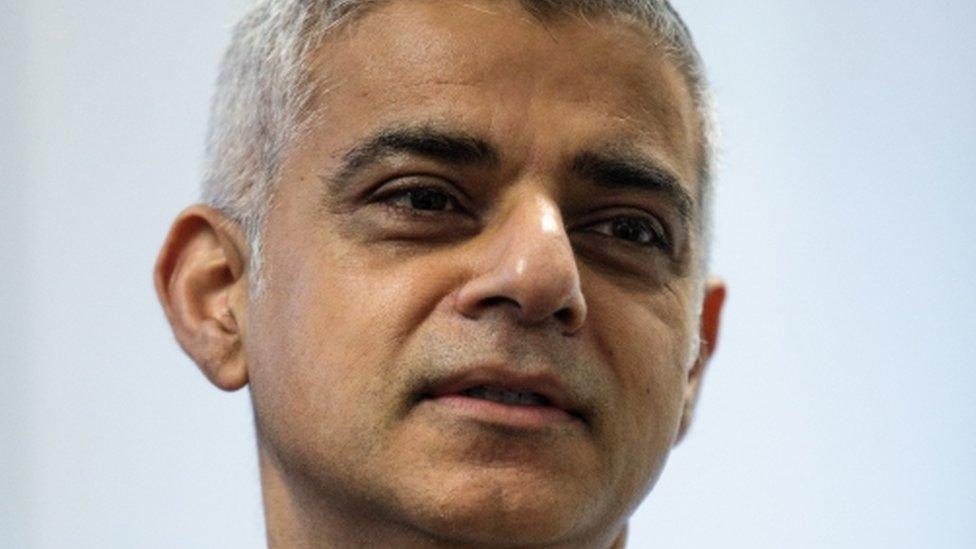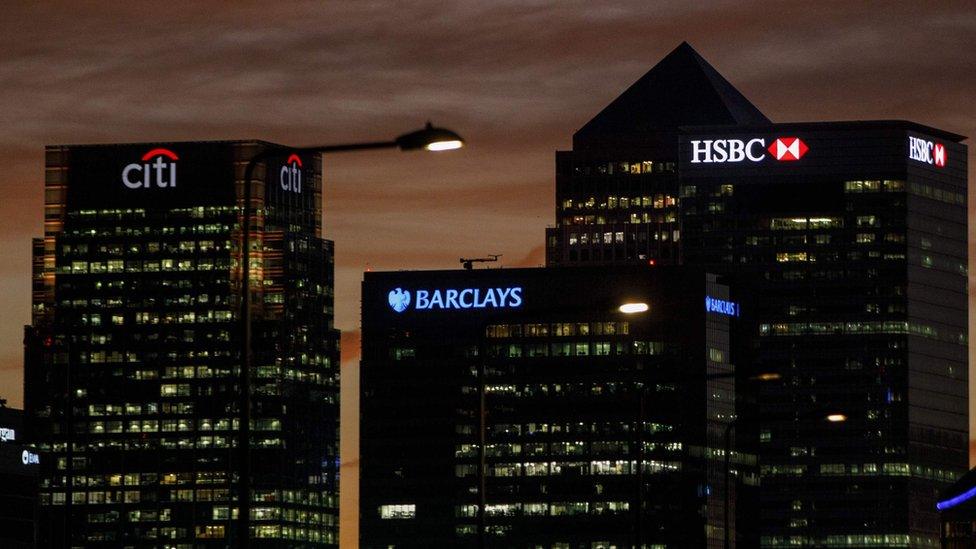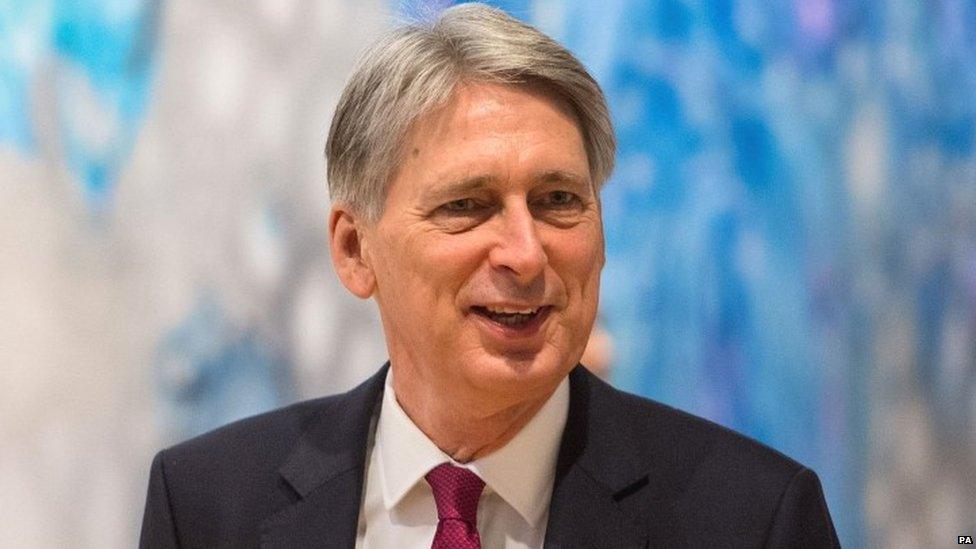Sadiq Khan warns of Brexit 'lost decade'
- Published
- comments

The Mayor of London, Sadiq Khan, has warned that a hard Brexit could lead to "a lost decade of lower growth".
He said a no-deal outcome, in which the UK left both the EU customs union and single market, could cost the country half a million jobs and £50bn in lost investment by 2030.
Mr Khan said the findings came from research he had commissioned from analysts Cambridge Econometrics.
He called on the government to alter its strategy in talks with Brussels.
"This new analysis shows why the government should now change its approach and negotiate a deal that enables us to remain in both the single market and the customs union," Mr Khan said.
"It's astonishing that the government has failed to do any proper impact assessments on what Brexit could mean for our economy.
"Their complete lack of preparation is irresponsible, leading to fears that they are putting party politics ahead of the national interest."


Analysis: by Chris Morris, Reality Check correspondent
The research commissioned by Sadiq Khan says that in a worst case scenario London could lose 87,000 jobs by 2030 as a result of a hard Brexit.
The London mayor admits this is a potential economic risk rather than a precise forecast of what will happen. Much depends on what gets negotiated with the EU.
Do the figures stand up to scrutiny? Well, the deputy governor of the Bank of England, Sam Woods, told a parliamentary committee in November that 75,000 job losses in London was a plausible number.
But the biggest factor is uncertainty. New data from recruitment firm Morgan McKinley says the number of new financial jobs available in the City has declined by 37% compared with the same time last year, because of the uncertainty that Brexit has produced.
On the other hand, the City of London's EU envoy, Jeremy Browne, said this week he thinks financial job losses linked to Brexit may not be as large as initially assumed - perhaps closer to 10,000 in the initial stages.
For comparison, it's also worth pointing out that 130,000 jobs were lost in London in the years after the 2008 financial crisis, and that the City has a long history of adjusting to and thriving in new economic circumstances.

Finance 'pivotal'
The London mayor's comments came ahead of a meeting between Theresa May and business leaders from the UK's financial services industry, as the government attempts to secure a Brexit deal that will include the sector.
The prime minister will meet with Barclays chief executive Jes Staley and Goldman Sachs International boss Richard Gnodde, among others, on Thursday afternoon.
Chancellor Philip Hammond will also attend after returning from Berlin, where he described financial services as pivotal to a "bespoke" trade deal.
In a joint article for the Frankfurter Allgemeine newspaper, Mr Hammond and Brexit Secretary David Davis said that "the economic partnership should cover the length and breadth of our economies including the service industries — and financial services".
Bloomberg reported that Germany was considering a plan that would give UK financial services companies access to Europe in exchange for payments to the EU budget.
Asked in Berlin if the UK would pay in exchange for bank access, Mr Hammond said: "We will talk about all of these things."
Juncker: Don't believe Brexit won't happen
UK's no-deal Brexit worries 'surprise' EU
Reality Check: Breaking down the deal
Senior executives from the London Stock Exchange will attend the regular meeting at 10 Downing Street along with Mark Wilson, chief executive of insurance group Aviva.
Paul Manduca, chairman of insurer Prudential, will also take part where he will also appear in his capacity as chairman of the advisory council of TheCityUK, the lobby group for the financial services sector.
Michel Barnier, the EU's chief Brexit negotiator, has said that there will not be a special deal with the UK financial services.
He told The Guardian: "There is no place it. There is not a single trade agreement that is open to financial services. It doesn't exist."
Mr Davis has described the UK's preferred deal with Europe as "Canada plus, plus, plus" - a reference to Canada's low-tariff free trade deal with the EU but with services included as well as goods.
UK-based banks and financial companies are concerned they will lose passporting rights that allow them to trade freely in the EU after Brexit.
If so, firms are likely to move jobs out of London and into the continent.
- Published11 January 2018

- Published10 January 2018